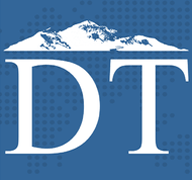Facial Recognition Expansion in UK Raises Human Rights Fears

Expansion of Real-Time Facial Recognition in the UK
Across the United Kingdom, millions of individuals are now being monitored through real-time facial-recognition systems. These advanced technologies are being deployed in a variety of public spaces, including supermarkets, festivals, and busy urban areas. This widespread use has positioned the UK as the only European country to implement such technology on this scale. At events like the Notting Hill Carnival, which is expected to attract nearly two million visitors, cameras are used to identify individuals on police watchlists using artificial intelligence.
Authorities argue that these systems serve as a powerful tool for law enforcement. They claim that since 2024, the technology has already contributed to over 1,000 arrests. Police vehicles equipped with facial recognition cameras monitor crowds, instantly alerting officers when a face matches a suspect in official databases. This rapid identification process allows law enforcement to act swiftly, particularly in high-crime areas. The deployment of this technology has expanded significantly since its initial trial in 2016.
However, critics have raised serious concerns about the implications of mass biometric data collection. They argue that the widespread use of facial recognition threatens civil liberties and could lead to a society where citizens are constantly treated as potential suspects. Rights groups emphasize the lack of comprehensive legislation regulating the use of this technology. Without clear legal frameworks, police forces are left to establish their own operational guidelines, raising fears that unchecked surveillance could severely limit anonymity and deter public participation in political, cultural, and protest activities.
The use of facial recognition technology by private businesses has also sparked controversy. Supermarkets and clothing stores, for example, are employing systems like Facewatch to detect suspected shoplifters. Many shoppers remain unaware that their faces are being scanned, leading to growing concerns about privacy, transparency, and the potential misuse of personal data by corporations operating beyond public scrutiny.
In contrast, the European Union has taken a more restrictive approach. Under its new AI legislation, most forms of real-time facial recognition have been banned, with only limited exceptions permitted for counterterrorism purposes. Despite these measures, the UK government recently approved the use of facial recognition technology in seven additional regions. This decision has drawn criticism from rights groups, human rights regulators, and citizens who argue that the technology disproportionately targets minorities and increases the risk of misidentifications.
Although officials claim there are safeguards in place—such as the deletion of data not related to suspects—human rights watchdogs have already deemed parts of the police's approach unlawful. Civil society organizations, legal experts, and individuals who have been wrongly identified are now calling for stronger protections. They warn that without proper oversight, the continued expansion of facial recognition technology could permanently alter life in UK cities, reshaping how people interact with public spaces and each other.

Comments
Post a Comment